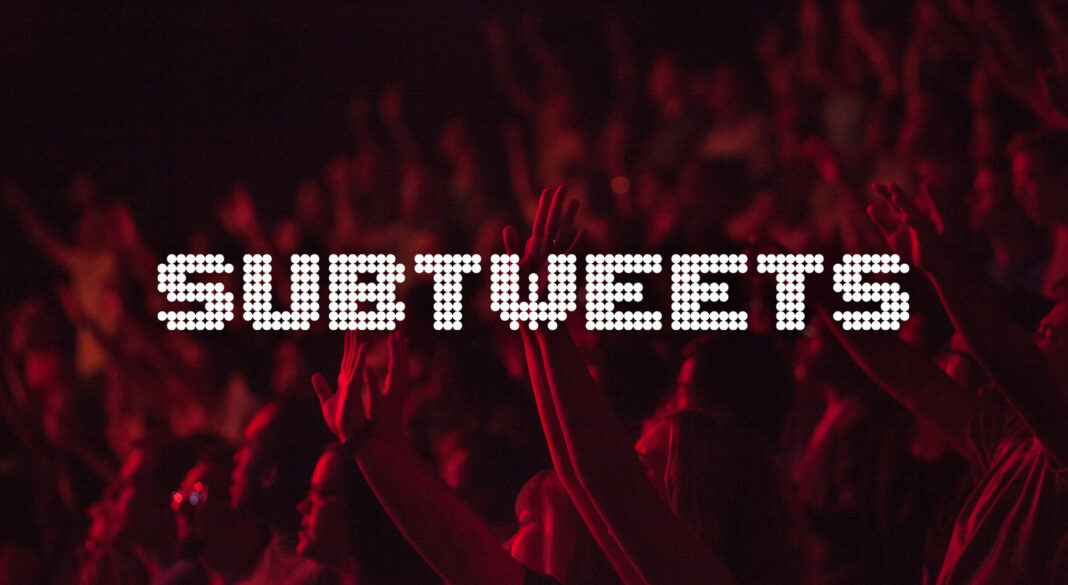Humble readers, I come to you as a sad Beyoncé fan. Like seemingly half of the UK’s entire population, I found myself in the online queue for the ‘Renaissance‘ tour this week, rapidly losing the will to gig. I counted down the CAPTCHAs, danced between the dates, paced through Twitter looking for any potential backdoor codes or suggestions as to which queue was shortest. Despite several days of effort, I came out empty-handed, watching with envy as several of my peers shared their multiple-date triumphs. Potential karma for my critique of the Queen herself? Perhaps. But while I can deal with the unfortunate inevitability of not bagging a seat at what must be the most anticipated tour of the year, I find the pricing a little more difficult to swallow. Not even a full 24 hours after the five London dates went on sale, Ticketmaster were already hiking up the prices; a £120 standing ticket became £266 ‘due to demand’, before promptly selling for up to £400 on the resale market. If you’re looking at a seat right up in the gods, they now retail secondhand at around £300-£500. Disappointing? Massively. But surprising? Not really; this is just the latest in Ticketmaster’s price-gouging tomfoolery.
As the largest ticketing company in the world, Ticketmaster – which merged with Live Nation in 2010 – have seemed particularly shameless in the last few years in their attempt to maximise their buck. Post-pandemic, they seem to know that physical concert experiences have more currency than ever before; we want to see, smell, congregate around our favourite artists, be in their physical presence even if our seat is so far away that it may as well be in a different postcode. Maybe it’s partially a technological-access thing; where tours were once teased through a dedicated email-only fanbase, we now all hear about events at the same time via social media, and we want to be part of it; to film the from-the-barrier TikTok that goes viral, or to have the interaction that makes our fandom feel ‘real’. But even without a cynical “kids these days” hat on, there can be no doubt that something has shifted in the way a ticket-buying experience feels. With regular site crashes, prices kept a secret until the exact point of sale, and a significant number of affordable seats ‘mysteriously’ disappearing early doors, ticketing bosses seem to rely near-exclusively on fan panic-buying, convincing them that paying over the odds is the only way to get in. Three days after the event, a quick check of Beyoncé’s first June stadium show at Tottenham Hotspur stadium reveals that there are actually still a fair choice of seats available in all sections, but the price has been hiked up so much that there is no real way that many fans could afford them. While gig-goers should of course take responsibility for their own finances and admit when something is beyond their means, it is frankly unforgivable that on the night of the event, many of those seats could be empty just because the ticketing companies got greedy.
As we have seen, this kind of ticketing emotion-baiting is actively stirring up fan division and discontent, loaded with a sense of injustice. On Harry Styles ‘Love On Tour’, all manner of disgruntlement has elapsed between the fans who can afford to be at every date, and those who can’t, with troublingly elitist connotations of what it means to be a ‘real’ fan. Videos and open letters have circulated pointing out the great swathes of empty seats at some of his North American shows, seemingly caused by price hikes. This week, there has also been drama with French fans of The 1975, who are so worried about Brits coming in and taking up space at their comparatively-small upcoming Paris shows that they’re actively fighting about whether people should be allowed to attend concerts abroad (a different debate for a different time, but hugely indicative of just how tetchy people have gotten around the desperate process of ticket buying).
Even the hotels are getting in on the exploitative action; if you want a safe, local kip after watching Queen Bey in Cardiff, rumour has it that you might need to be willing to part with the equivalent of a house deposit. Fancy making a weekend of Sam Fender’s homecoming show in St James’ Park this summer? Make sure you leave early enough to catch a train because three-quarters of Tyneside is now booked out or ludicrously expensive. Given that so many of the people who travel long distances to concerts are young women, fans are increasingly being put in unsafe situations in an attempt to claw back some budget, completely taking the fun out of what should be a memorable, stress-free experience. How can you really enjoy a gig if you’re having to think about what you can afford to eat that month, or which elaborate late-night journey you’re going to have to take to get home?
Seemingly, it isn’t just the fans who are fed up. At this year’s Grammys, one reporter asked Jack Antonoff how he felt about price hiking, eliciting a passionate response. “I’ve asked very simple things of the industry: let artists opt out of dynamic pricing. Stop taxing merch. Let artists sell tickets at a price they actually believe in… We know who’s making it impossible.” In the ceremony itself, Grammys host Trevor Noah made a quip about Taylor Swift’s recent disgruntlement with her ‘Eras’ tour, which sent Ticketmaster into full meltdown. At the time, Swift revealed her frustrations in an open letter via social media, and seems to endorse the idea of a recent fan-led lawsuit, mobilising in an attempt to sue Ticketmaster for “fraud, price-fixing, and antitrust violations.” It is a scandal that has rocked the industry; though Eras tickets had been put on sale through a ‘verified fan’ presale on 15 November, Ticketmaster were forced to admit that demand had completely outweighed their capabilities and that the sale had been attacked by a “staggering number” of bots. As an unprecedented result, the general sale was cancelled; within hours, US tickets were being resold on secondary websites for as much as $22,000.
In many ways, the landmark screw-up of the Eras Tour might finally be the pivotal nail in Ticketmaster’s monopoly coffin. With Swifties currently working to recruit many members of the Beyhive to their lawsuit evidence-giving, there is something strangely heartwarming about watching two Stan armies putting their historical differences aside to unite for a common cause, with many other fanbases also chipping in with frustrations and concerns about the live concert experience. But nonetheless, there is something depressing about watching so much of this labour fall to fans. Instead, we need real activism and allyship from industry and artists who have a responsibility to think of people as well as profit. Fans should not have to queue online for five-plus hours only to find that tickets are priced way out of reach, or be left unable to budget right until the last minute because prices were not communicated in advance, or tickets went on sale with no significant notice. Ticketing websites need to work harder to crack down on bots once and for all, and to limit the amount that one can re-sell a ticket for to face value (or something much closer to it). Where possible, artists should communicate schemes like Big Green Coach that can help to get people safely (and affordably) home, and venues and transport schemes should work together to ensure sensible timings that won’t leave people stranded or forced into overpriced hotels. And hidden costs — those elaborate ‘transaction’ fees that pop up right after you secure your ticket — should be made more transparent or scrapped entirely, especially in the age of ticketless access.
Artist demand will always be a thing. Fans can surely learn to swallow the acceptance that when you love a stadium-sized artist, you won’t always get in. In my head, I am very much comforting myself with the knowledge that the Renaissance Tour will almost certainly get a filmed release, the kind that I can enjoy from the comfort of home without an elbow or overpriced drink being shunted in my face. But when ticket buying feels like a total lottery rather than an organised system, there has got to be a better way for those who want to be part of the live action to get through. Until everybody kicks off in unison — fans, journalists, politicians, artists themselves — the mess seems set to continue, written off as a mere byproduct of modern demand. In the meantime, spare a thought for your fellow fan; no matter how we try to comfort ourselves, the grief of being (unjustly) ticketless can be a very cruel beast indeed.
READ MORE: Can we bringing queuing culture at gigs back to safer ground?







